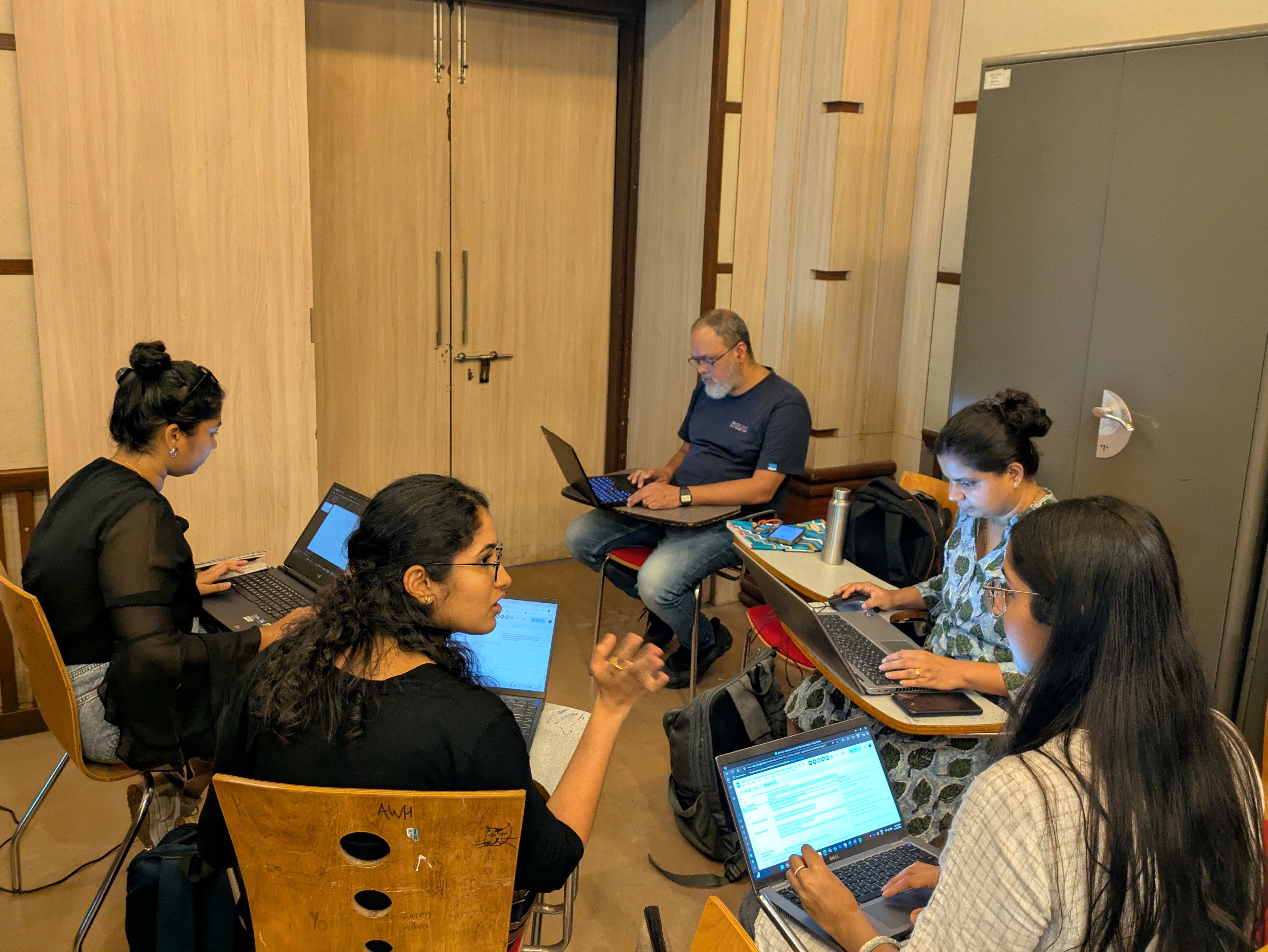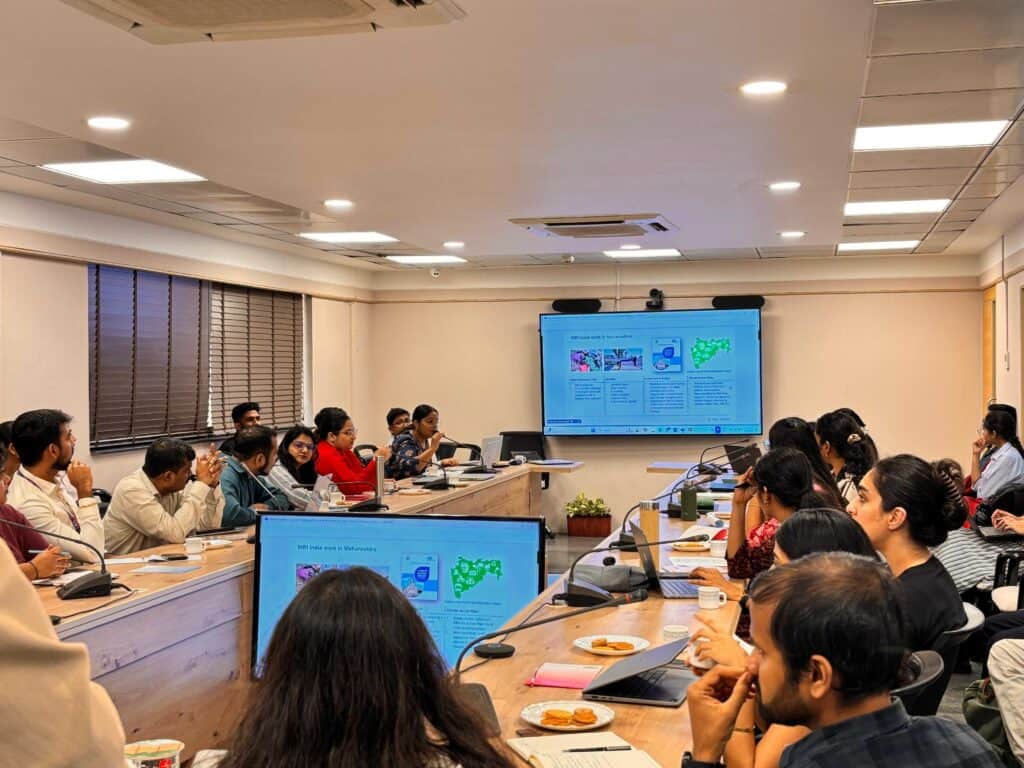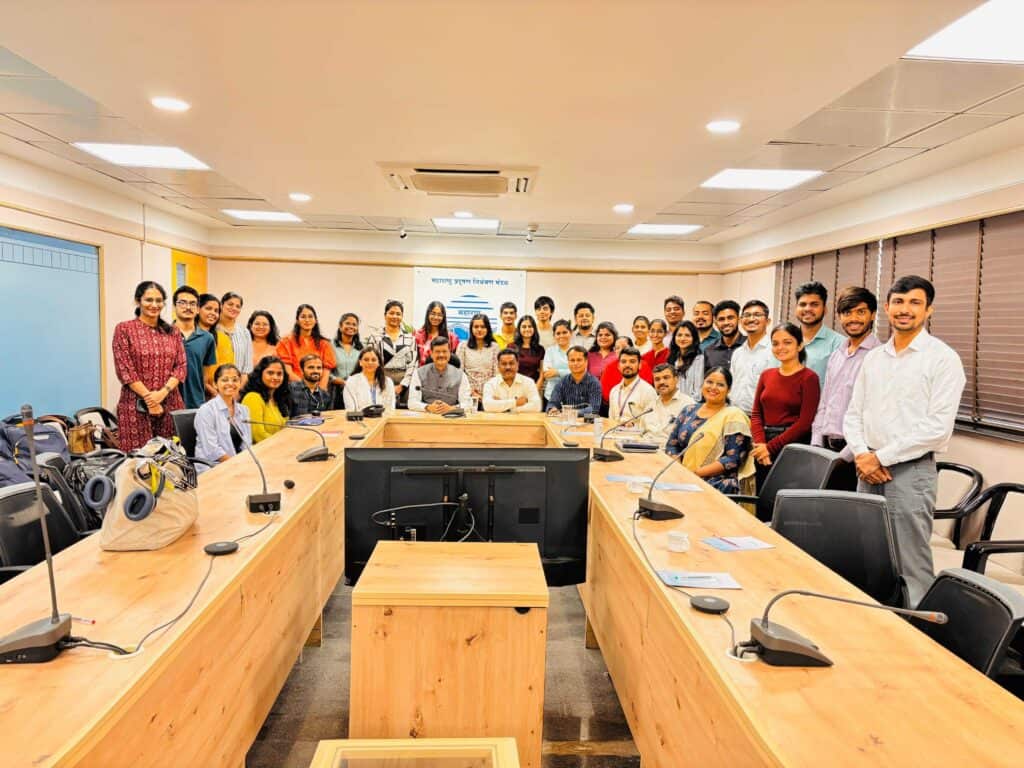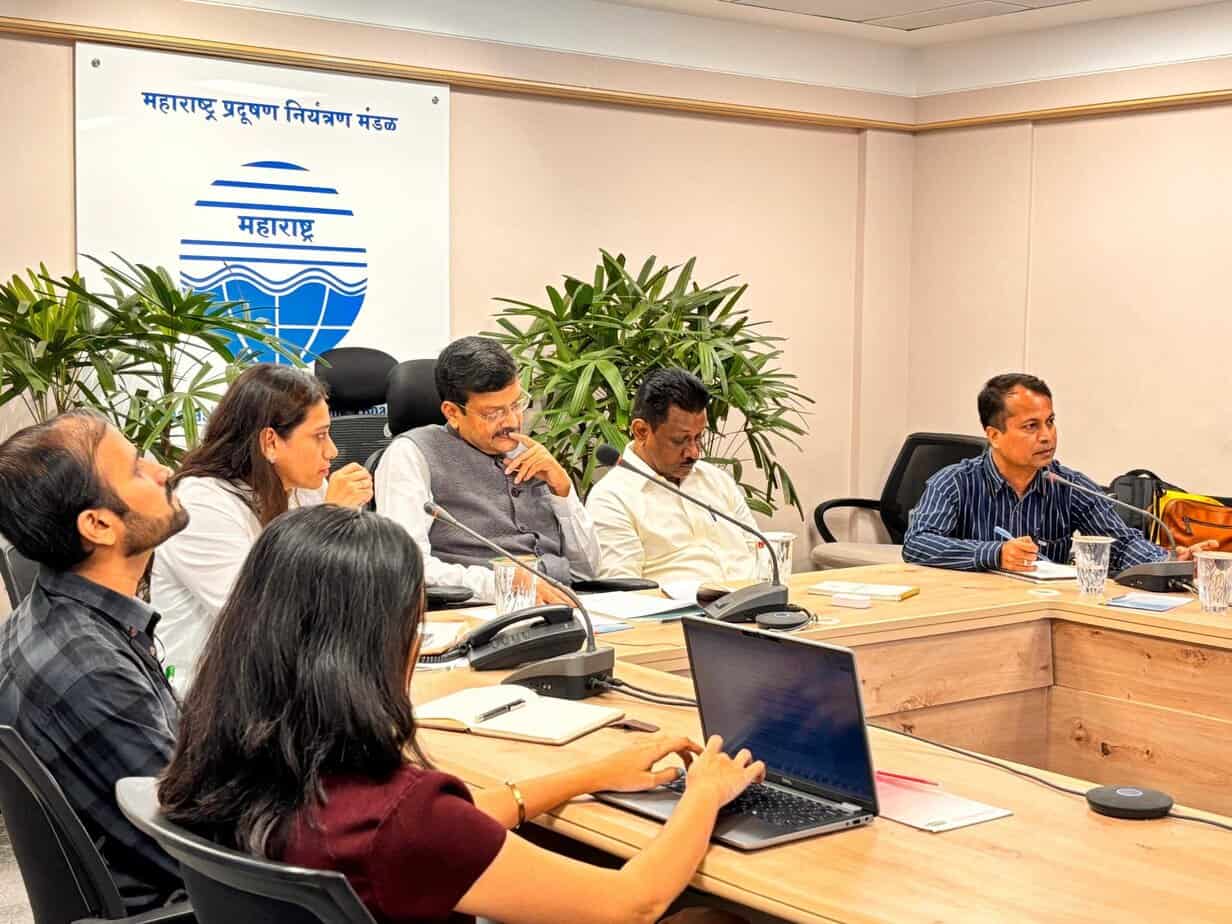On June 7th, OpenCity.in in collaboration with the Maharashtra State Climate Action Cell, under the Ministry of Environment, Government of Maharashtra organized and conducted the Mumbai Urban Heat Datajam. This was followed by a workshop for city officials, to empower them to use data for understanding and decision making for ward-level interventions.
Analysing Mumbai’s Heat Challenges
The datajam hosted at St. Xavier’s iconic South Mumbai campus, was a collaborative event that brought together state officials, climate scientists, GIS experts, data analysts, urban planners and architects to tackle one of the city’s most urgent climate risks: urban heat.

35 participants worked on real-world datasets — from land surface temperature (LST), green cover, public transport, land use changes and multiple variables to expand the scope of impact that heat exposure has among vulnerable groups, a topic that is often limited to just public health. The Data Jam focussed on 5 key-priority wards of Mumbai which were selected to heat map risks and solutions – H/East, M/East, G/South, P/North and L wards.
- Read more: Report: Urban Heat Datajam in Mumbai
The event was supported by WRI India, Heatwave Action Coalition, C40 Cities and the Blue Ribbon Movement.
Why focus on urban heat
- Mumbai recorded an alarming 39°C temperature as early as February 2025, the first heatwave recorded in the country in 2025.
- With more than 40% of the population living in informal settlements, Mumbai is prone to heat stress, straining the city’s dense population clusters and public infrastructure.
Oorvani had earlier collaborated with Bengaluru’s city corporation – BBMP to organise a heat jam to explore the impact of heat on Bengaluru’s wards in 2024. We also organised a similar event in Chennai, with the findings presented to Chennai’s planning authority, CMDA
Capacity building training workshop for the BMC

The data jam was followed by a Capacity Building and Training Workshop for the Brihanmumbai Municipal Corporation (BMC) and the State Climate Action Cell at the Maharashtra Pollution Control Board office (MPCB), Mumbai on July 4th 2025.
The training on Urban Heat Resilience for city and state officials event brought together 40+ participants from officials of state and city departments such as environment and climate change dept, gardens and tree authority, disaster management and ward officials alongside experts and knowledge partners.

This effort was about more than just data — it was about building a city-wide climate culture, rooted in collaboration between government, academia, and experts.
[With inputs from Sarita Fernandes, Fellow at the Maharashtra State Climate Action Cell]

